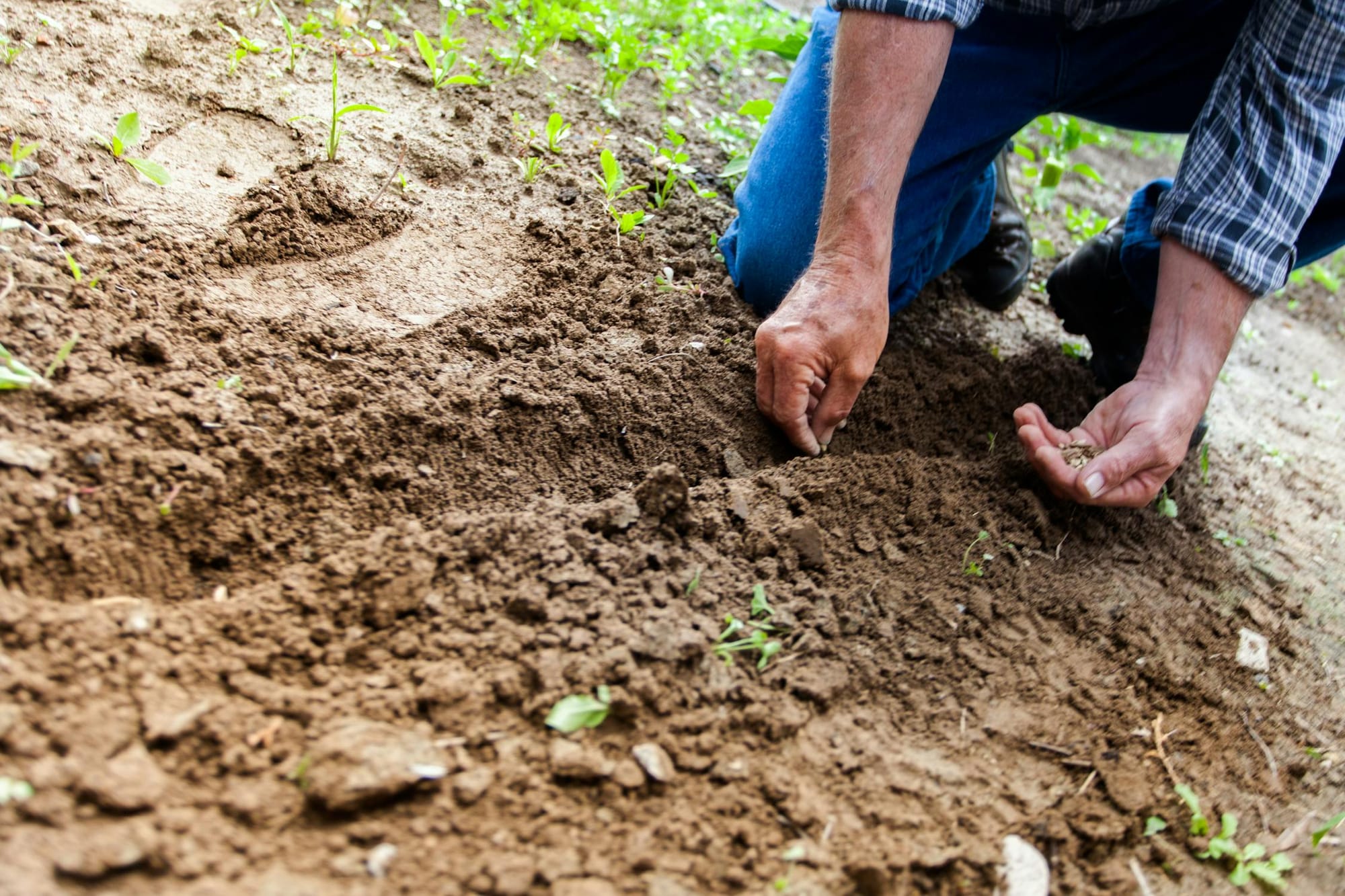Sowing for Harvest

"Be not deceived God is not mocked; for whatsoever a man sows, that shall he also reap. For he that sows to his flesh shall of the flesh reap corruption; but he that sows to the Spirit shall of the Spirit reap life everlasting. And let us not be weary in well doing; for in due season, we shall reap, if we faint not. As we have therefore opportunity, let us do good unto all men, especially unto them who are of the household of faith." - Galatians 6:7-10
When I was young, my father planted a garden. He used a rotor tiller to prepare the small plot by turning under all the grass and weeds. He formed mounded rows and placed each seed in a small indentation that he created with his finger. After the last seed was planted, he watered the garden and waited in eager anticipation for its fruit and veggies.
Soon after, my dad found that instead of plants, weeds had reared their ugly heads. Every day, he pulled weeds while being diligent to get all of the root as well. If a bit of root remained, the stubborn weed would return. It was painful and time consuming, but over the course of weeks, the plants sprouted, grew to maturity, and bore fruit. We had fresh onions, tomatoes, potatoes, cabbage, broccoli, and carrots. His labor had a plenteous return and was well worth the effort.
Jesus used parables to teach, and He often spoke of soil, sowing seeds, weeds and fruit as metaphors for our lives (e.g., Matthew 13:1-9, 24-30, 31-32, etc.). These stories bring to mind my father's garden. I recall the labor involved in preparing the ground, the persistence of the weeds, and the reward of good fruit.
In every moment of our lives, we are sowing seeds. Jesus stressed the importance of using wisdom in each situation and to be careful how we spend our time, for each decision has a consequence. Today's text highlights that we should not be deceived, for we will reap what we sow. There is no middle ground. Every second, either in thought, word, or action we are sowing either to the flesh or the Spirit. Our lives have all gotten out of control at some point, and we wonder what happened. Like my dad's garden, a plentiful harvest comes down to persistence in removing weeds and being careful in what we choose to sow.
Television shows and the internet celebrate nudity, adultery, and murder, and too often we allow them to impact our children. Our culture prioritizes economic measures of success at the expense of familial values and raising moral children, and then we question why our world is spiraling out of control. Crime rates and violent acts are so common that they do not even surprise us anymore. Jesus' parables give us insight into our condition, as the weeds remind us that we must be more vigilant in what we sow.
We must ask ourselves, "What does my garden look like and am I happy with its condition?” If not, we must cultivate the soil of our minds and should carefully examine the seeds we are sowing. In my dad's garden, even when it was ploughed many weeds remained under the surface. Likewise, seeds that were planted over many years of fleshly living still have consequences. Pornographic images viewed as teenagers may flash into our minds decades later. Worry or covetousness make us believe that we have to work long hours, when God has promised to meet all of our needs (Matthew 6:25-34). Jesus warned us that worries and concerns of this life can make us unfruitful (Matthew 13:22). It all comes down to what we sow and being diligent in pulling weeds.
If our life is out of control, we must repent and till under the weeds to provide fresh soil. Then, begin each day by reading the Bible so its seeds will bear fruit throughout our day. Then by deciding what we want our garden to look like, we can choose the seeds that align with our vision. It is vital to plan; sowing is a daily choice. When we sow biblical values in our children and loving service to our communities, our personal gardens will flourish, and our world will be transformed. Pray and ask God for guidance, then sow.
